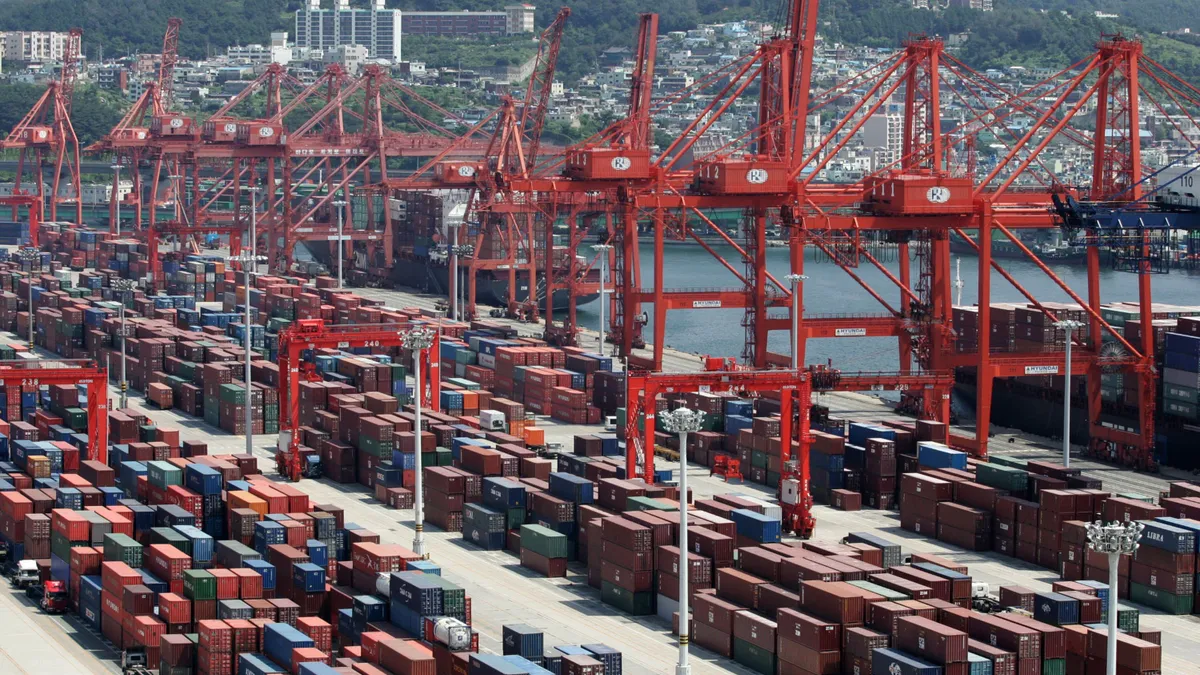A trade agreement focused on strengthening supply chain resiliency among countries that trade heavily on Pacific Ocean routes is set to go into effect later this month, with member countries to fill out key committees and take other first steps.
The Indo-Pacific Economic Framework for Prosperity (IPEF) supply chain agreement will enter into force on Feb. 24, according to a release from the U.S. Department of Commerce. The pact calls for improving data sharing, fostering warehousing near ports, identifying and mitigating other logistical bottlenecks and supply chain disruptions, and collaboration among member countries on policy best practices.
IPEF’s partner countries — the U.S., Australia, Brunei, Fiji, India, Indonesia, Japan, South Korea, Malaysia, New Zealand, the Philippines, Singapore, Thailand and Vietnam — signed the agreement in November.
The aim, as the department put it, is to build “resilient, efficient, productive, sustainable, transparent, diversified, secure, fair, and inclusive supply chains.” President Joe Biden’s trade report last year called the agreement “a 21st century framework designed to tackle 21st century challenges and opportunities.”
Among other provisions, the agreement created three new collaborative bodies: the Supply Chain Council, Supply Chain Crisis Response Network and Labor Rights Advisory Board.
Once the agreement enters into force, partner countries will have several milestones to meet, specifically:
- Identifying representatives to the three supply chain bodies created by the agreement by March 25.
- Selecting the chair of each body by April 24.
- Each body adopting the terms of reference by June 23.
- Identifying and notifying partners of each country’s list of critical sectors and key goods for cooperation under the agreement by 120 days after the date of the entry into force.
- Developing guidelines for a reporting mechanism on labor rights issues in supply chains by August 22.
Once the new supply chain groups are created, each have broad mandates to facilitate cooperation and information sharing, addressing issues in their respective topic areas, and involving the private sector.
Broadest among the IPEF bodies is the Supply Chain Council, which is to be staffed by government officials from member countries. It’s tasked with developing best policy practices around trade in critical sectors and key goods, as well as collaborating on policy and other actions that can boost resilience, sustainability, transparency, fairness, security and other aspects of supply chains, according to the agreement framework.
More specifically, under the agreement the council is to develop an action plan that can include recommendations on everything from material recycling to workforce skills and port connections.
The Supply Chain Crisis Response Network, meanwhile, is meant to facilitate communication and responses among member countries amid supply chain disruption as well as develop stress tests and preparedness practices.
The Labor Rights Advisory Board, as its name suggests, promotes labor rights in supply chains among member countries through business advisories, best practice guides for enterprises and other efforts. In its trade report last year, the Biden administration said that labor issues are a linchpin in its trade policy and pointed to the IPEF framework as one example.
“By working closely with allies and partners to bolster our economic engagement in the Indo-Pacific, we can establish a new path forward that supports the global competitiveness of American workers and businesses and furthers the shared interests of our allies in the years to come,” the administration said then.














